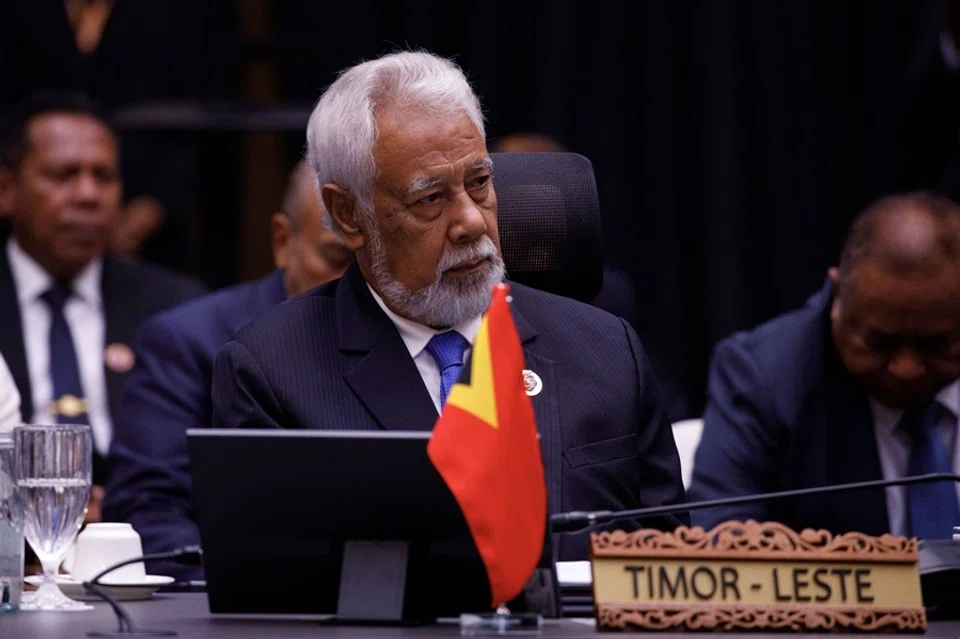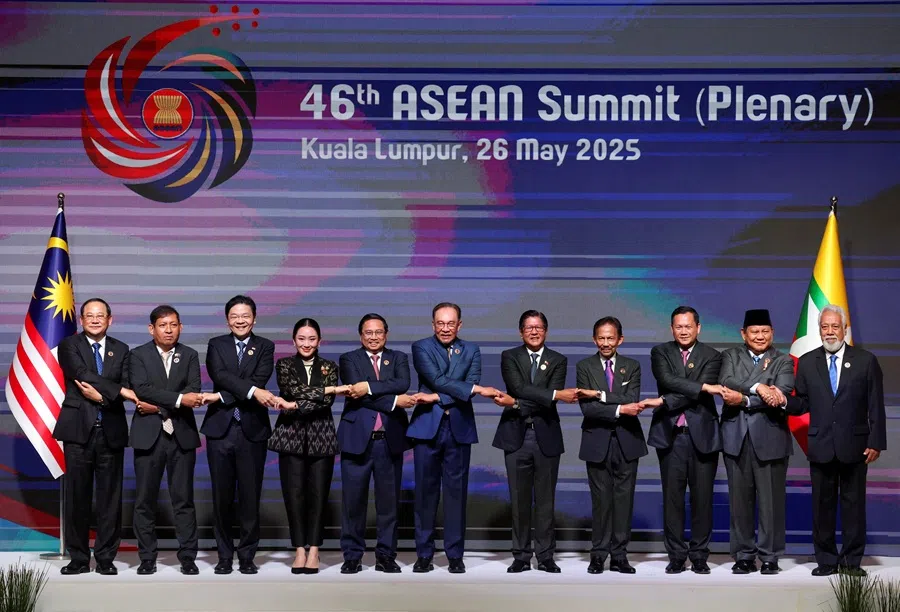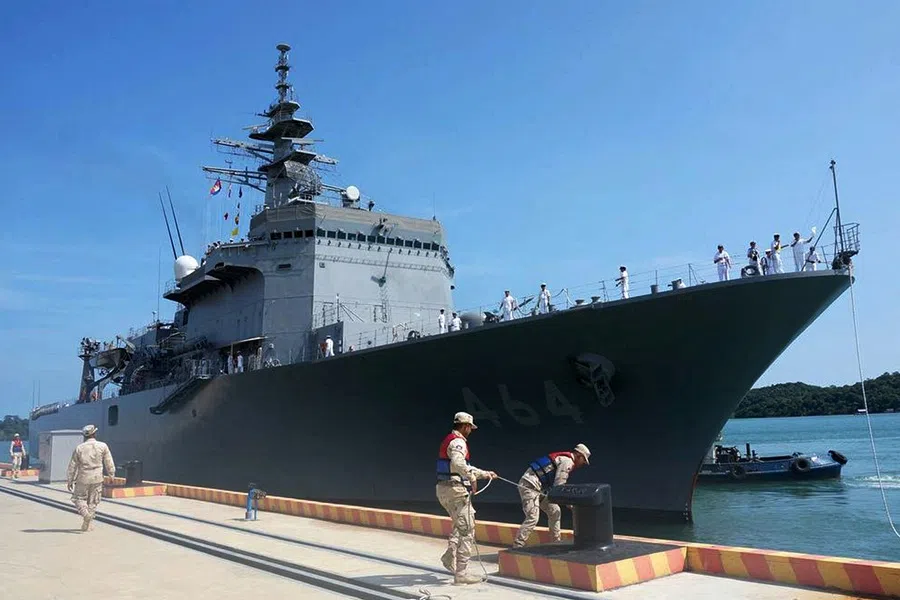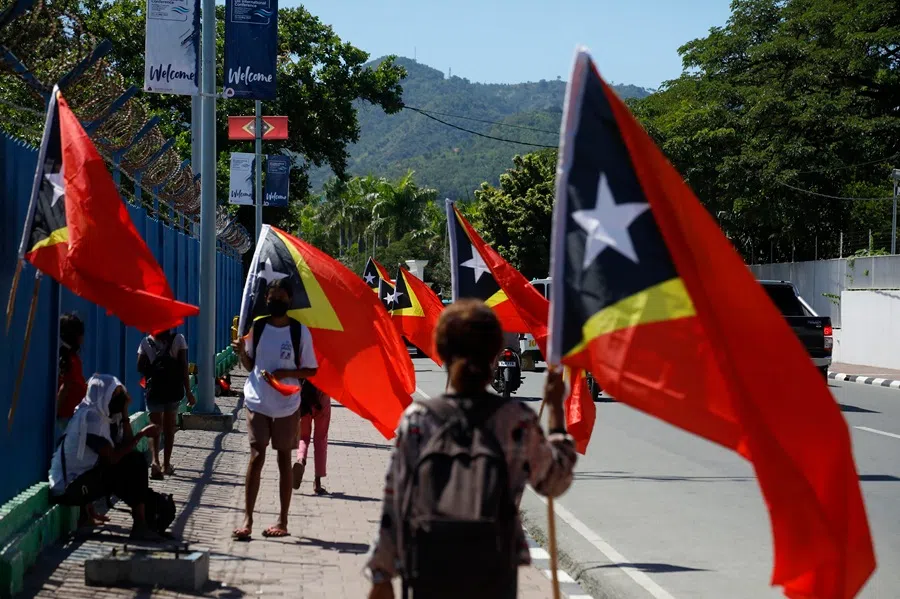What Timor-Leste’s China ties really mean for ASEAN
With Timor-Leste’s entry to ASEAN possibly taking place as early as October 2025, researchers Jackson Huang and Yao Bowen discuss whether Dili’s close ties with major powers like China could risk ASEAN becoming further divided on key regional issues.

After years of anticipation, Timor-Leste is finally nearing ASEAN membership, with Malaysian Prime Minister Anwar Ibrahim announcing during the 46th ASEAN Summit that it could be formalised as early as October 2025. This marks the culmination of its decade-long bid, first submitted in 2011. While the moment is undoubtedly historic — signalling ASEAN’s continued commitment to regional inclusivity — it comes at a time of growing geopolitical uncertainty. The intensifying US-China rivalry continues to test ASEAN’s unity and cohesion.
In this context, some observers have expressed concern that Timor-Leste’s accession could further erode the bloc’s already fragile consensus-based decision-making or exacerbate internal divisions. At a time when ASEAN unity is more critical than ever, the inclusion of a small, institutionally inexperienced state has raised questions about the impact of enlargement on the bloc’s effectiveness. Nonetheless, we believe that while Timor-Leste’s entry may pose some challenges to consensus-building, its actual impact on ASEAN’s cohesion and strategic direction will likely be limited.
For Timor-Leste, ASEAN membership is a strategic necessity, not just a symbolic goal.
Journey to ASEAN
Timor-Leste began its slow process of joining ASEAN as early as 2005, when it became a member of the ASEAN Regional Forum. It formally applied for full membership in 2011, during Indonesia’s chairmanship — Indonesia being its strongest supporter within the bloc. In 2022, ASEAN formally agreed “in principle” to admit Timor-Leste as its 11th member, with full membership contingent on further institutional readiness.
For Timor-Leste, ASEAN membership is a strategic necessity, not just a symbolic goal. As one of Asia’s poorest countries, with a GDP per capita of US$1,648 in 2023 and an economy reliant on oil for up to 90% of its revenue, joining ASEAN offers crucial economic opportunities. Between 2004 and 2022, over 60% of its US$13.4 billion in imports came from ASEAN markets. Recent cuts in US aid and a 10% tariff on its exports have heightened its economic vulnerability, making ASEAN ties even more vital.

Politically, full membership offers a platform to enhance national security and diplomatic leverage. As a small and fragile state, Timor-Leste sees ASEAN as a way to strengthen its hand in negotiations with larger powers, including in disputes such as the Greater Sunrise oil field with Australia. Additionally, ASEAN membership allows it to have greater influence in dealing with other small states within forums that it is a member of, for instance, the Group of Seven Plus (g7+), allowing Timor-Leste to amplify its voice in multilateral discussions on development, peace and security.
Behind closed doors, doubts persist over whether Timor-Leste can navigate the complexity of ASEAN diplomacy and decision-making.
Concern over Timor-Leste’s membership and ASEAN decision-making
Now that Timor-Leste’s long-awaited accession to ASEAN seems imminent, concerns persist over its potential economic impact on the bloc.
Economically, its institutional underdevelopment, economic dependence and limited administrative capacity have led some ASEAN members to question whether the country is ready to shoulder the responsibilities of full membership. Behind closed doors, doubts persist over whether Timor-Leste can navigate the complexity of ASEAN diplomacy and decision-making. Some member states are still reflecting on ASEAN’s rapid enlargement in the 1990s and are wary of repeating steps that could undermine the bloc’s cohesion.
But perhaps the more important concern is the political effect of Timor-Leste’s accession. The country’s accession to ASEAN has sparked renewed attention to the bloc’s unique consensus-based decision-making model. While consensus is often praised for promoting harmony and preventing confrontation among diverse member states, it is also criticised for slowing progress, especially in times of crisis or when swift collective action is required.
The 2021 Myanmar coup exemplified this tension. ASEAN’s slow and divided response underscored the model’s fragility. Member states were split over whether to engage with or isolate Myanmar’s military junta. The resulting deadlock revealed the limitations of consensus when national interests diverge sharply, particularly on sensitive political or security matters.

This impasse led ASEAN to experiment more openly with the “ASEAN minus X” formula — allowing subgroups of willing states to act when full consensus proves elusive. While this approach offers procedural flexibility, it also challenges the bloc’s coherence and raises questions about institutional legitimacy and inclusivity.
... placing Timor-Leste–China relations within the broader context of Timor-Leste’s foreign policy reveals that the country is unlikely to become the “next Cambodia” in ASEAN.
Through the lens of growing Timor-Leste–China relations
In this context, concerns about Timor-Leste’s readiness and geopolitical alignment are not new. Within ASEAN, some member states worry that Dili’s close ties with Beijing, manifested in infrastructure investments and diplomatic support, could risk ASEAN becoming further divided on key regional issues, particularly the South China Sea. The example of Cambodia, viewed by some as China’s leverage point within ASEAN, is cited as a cautionary tale.
Outside ASEAN, scrutiny of Timor-Leste has intensified several times as well. During the 20th anniversary of Timor-Leste’s independence in May 2022, President Ramos-Horta openly expressed the need to deepen ties with China, among other partners. The following year, Timor-Leste elevated its diplomatic relations with Beijing, leading to further anxiety in some quarters.
Such concerns about Timor-Leste’s impact on ASEAN may be overstated for two main reasons. First, Timor-Leste has consistently demonstrated its commitment to ASEAN norms. It has adopted the ASEAN Charter into its legal framework, opened diplomatic missions in all ASEAN states, and voluntarily participated in an intensive capacity assessment process. Additionally, Timor-Leste regularly attends ASEAN meetings as an observer and has sought technical support to align its institutions with ASEAN standards.
No cause for alarm
Secondly, placing Timor-Leste–China relations within the broader context of Timor-Leste’s foreign policy reveals that the country is unlikely to become the “next Cambodia” in ASEAN. Timor-Leste is acutely aware of its geopolitical limitations and aims to maintain a balanced approach. While relations with China have indeed been elevated in recent years — evident in the gradual increase of Chinese economic presence — the country has shown no intention of aligning itself exclusively with any one power. Instead, it continues to emphasise a neutral, multilateral foreign policy strategy.
China remains in the process of catching up with the longstanding influence of Timor-Leste’s traditional partners — such as Australia, Japan, ASEAN, the European Union, and institutions like the Asian Development Bank (ADB) and International Financial Institutions (IFIs)...

For example, on the South China Sea issue, while Cambodia has often aligned exclusively with China at the expense of obstructing ASEAN consensus, Timor-Leste has instead supported international law and peaceful dispute resolution. After the 2016 Philippines case against China at The Hague, it called for a respect of “rules-based order and expressed concern over unilateral actions in the region”.
In addition, despite its positive attitude towards China-led initiatives such as the Belt and Road Initiative and Asian Infrastructure Investment Bank, the country has equally respected and joined other regional and international initiatives and organisations such as ASEAN, the WTO and the Community of Portuguese Language Countries.
In this context, the recent elevation of bilateral relations with Beijing reflects Timor-Leste’s practical developmental and economic needs. As one of the least developed countries in the region, Timor-Leste views China’s vast market and economic power as an opportunity, just as how it views the ASEAN market. Even so, China remains in the process of catching up with the longstanding influence of Timor-Leste’s traditional partners — such as Australia, Japan, ASEAN, the European Union, and institutions like the Asian Development Bank (ADB) and International Financial Institutions (IFIs) — which continue to play a crucial role in the country’s development.
Last but not least, ASEAN has institutional tools to manage differences and steer collective direction. The rotating chairmanship, for example, grants each member the opportunity to shape agendas, but also builds mutual tolerance through shared procedural ownership. As scholarship notes, the chair’s role is crucial in reconciling divergent preferences and advancing regional consensus, even in difficult cases.
The greater threat to ASEAN unity may lie less in new entrants than in entrenched divisions among older members over how to respond to shifting regional power dynamics.

Ultimately, Timor-Leste’s entry presents a test not just of its own readiness but of ASEAN’s capacity to adapt and remain inclusive without sacrificing functionality. While challenges to consensus-building will persist, the precedent of past enlargements suggests that the bloc has mechanisms — both formal and informal — to absorb and integrate smaller, less developed members without fundamentally undermining its cohesion.
In sum, while the addition of Timor-Leste may initially slow decision-making on contentious issues, its overall effect on ASEAN’s strategic posture and internal solidarity will likely be manageable. The greater threat to ASEAN unity may lie less in new entrants than in entrenched divisions among older members over how to respond to shifting regional power dynamics. In this light, ASEAN’s challenge remains one of political will, not institutional design alone.






